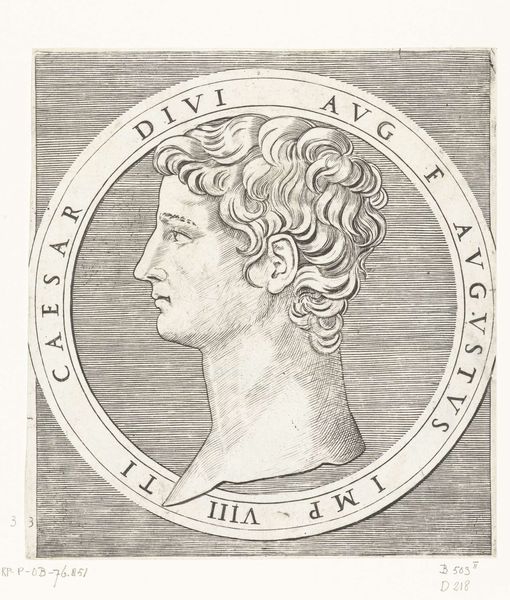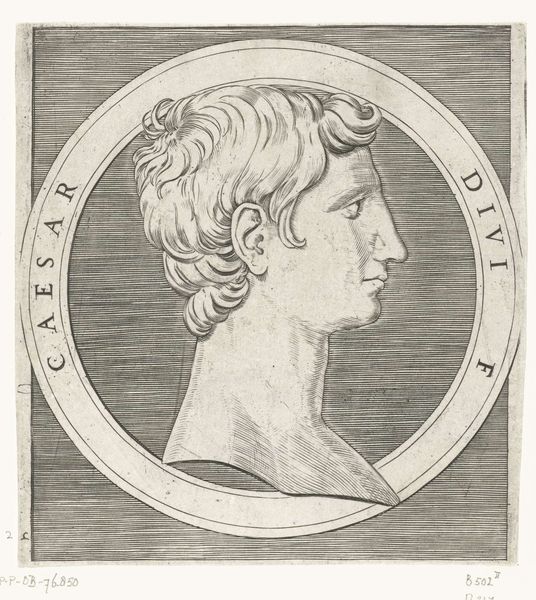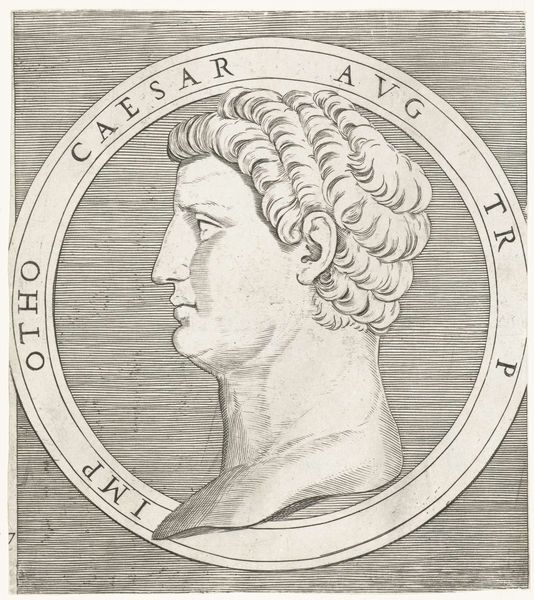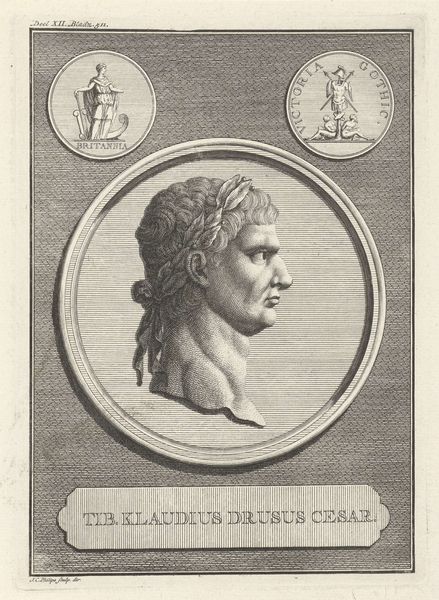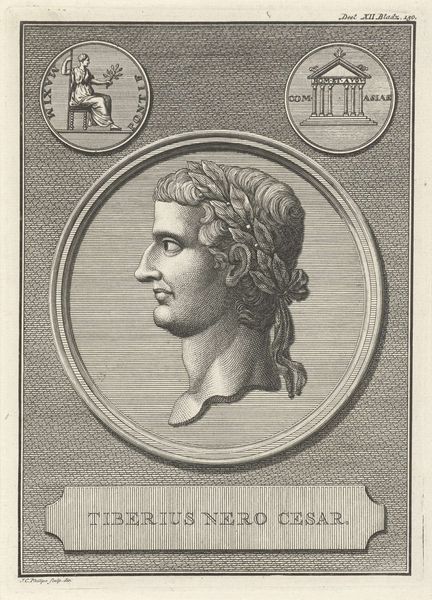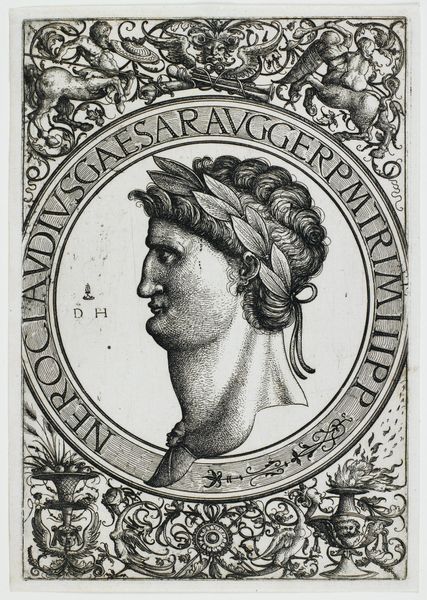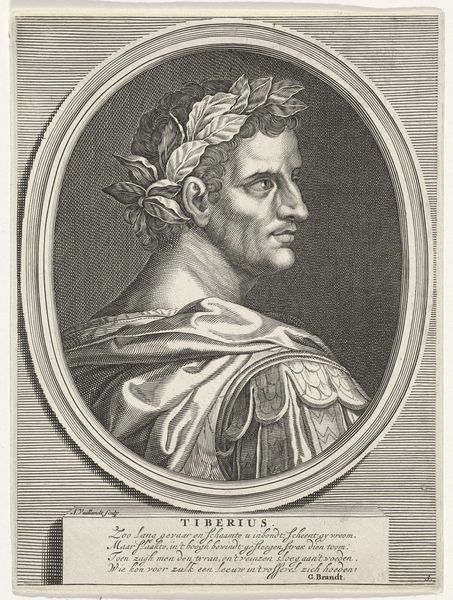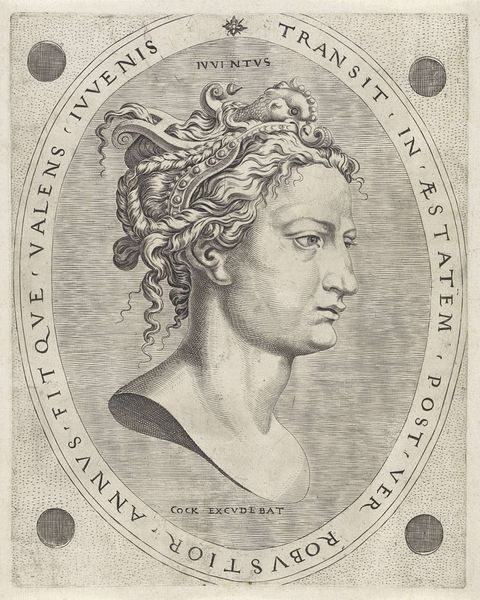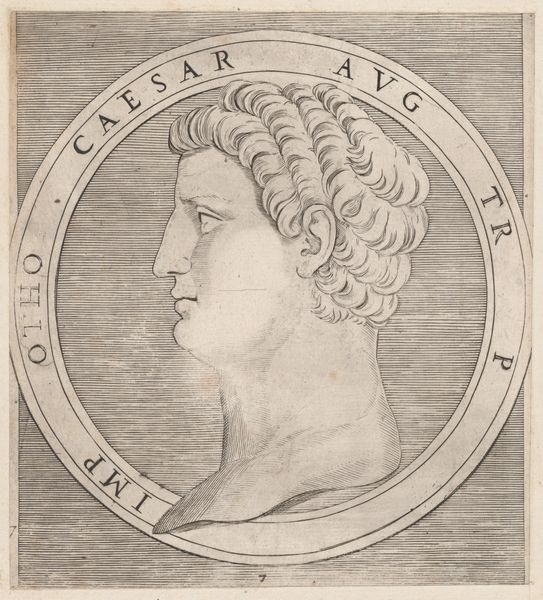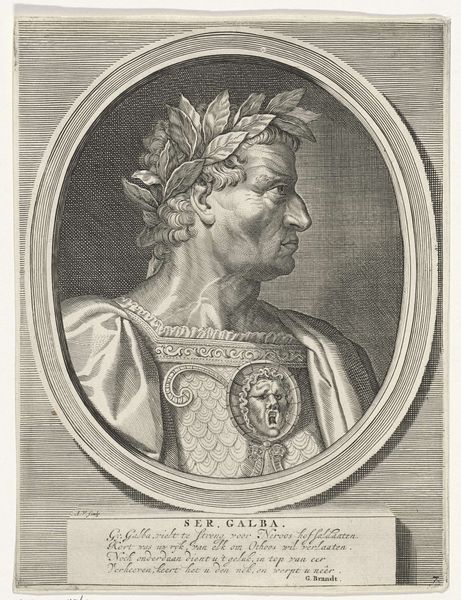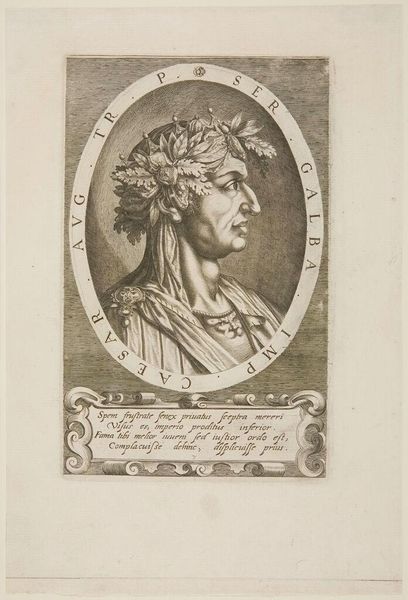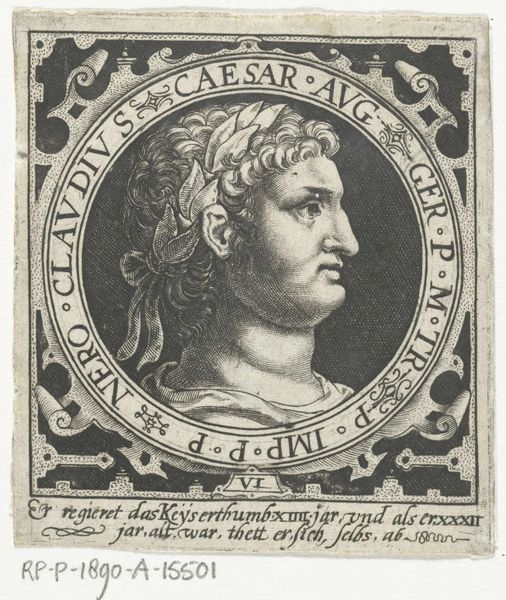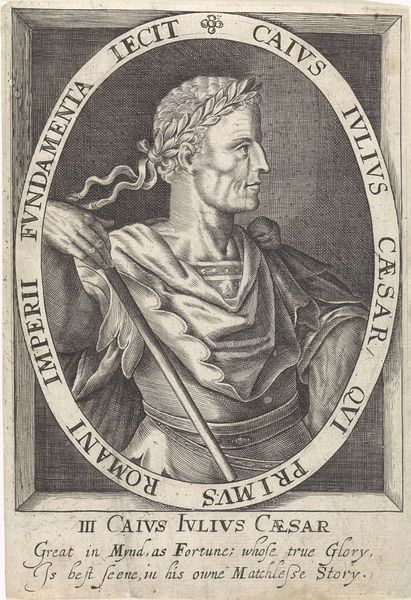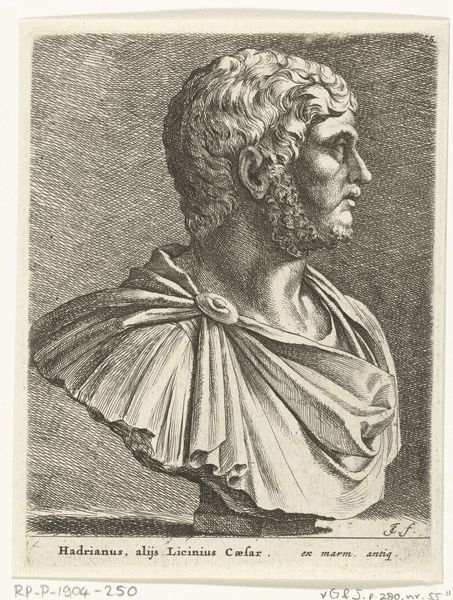
engraving
#
portrait
#
caricature
#
11_renaissance
#
history-painting
#
italian-renaissance
#
engraving
Dimensions: height 175 mm, width 153 mm
Copyright: Rijks Museum: Open Domain
This print of Emperor Claudius I in a round frame, was made by Marcantonio Raimondi using engraving, a process that demands precision and control. Raimondi used a tool called a burin to carve lines into a copper plate. The depth and spacing of these lines are what give the portrait its form and tonality. It's a labor-intensive process, requiring years of training to master. What’s more, the quality of the print depends not only on Raimondi’s skill, but also on the quality of the paper, the ink, and the press. Engraving like this was a key technology in the Renaissance. It allowed for the mass production of images, and the dissemination of ideas. In a way, this portrait of Claudius is both a work of art and a piece of propaganda, designed to convey the power and authority of the Roman Empire. The act of printing itself, with its reliance on skilled labor and specialized tools, ties directly into wider social issues of labor, politics, and consumption. So next time you see a print, remember that it's not just an image, but a record of human ingenuity and effort.
Comments
No comments
Be the first to comment and join the conversation on the ultimate creative platform.
